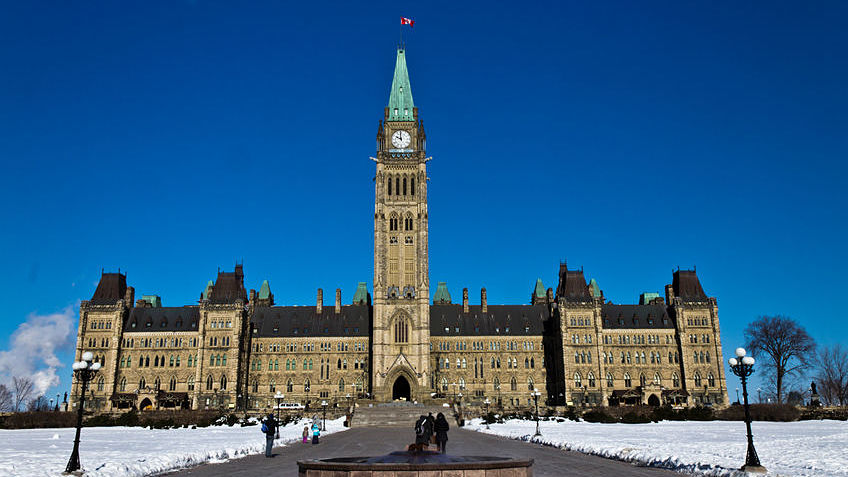
The federal government is proposing to eliminate the public transit tax credit, the first-time donor’s super credit and various other tax measures that it has determined have low uptake or result in disproportionate benefits for certain segments of the population.
The tax changes in the 2017 federal budget, tabled by Finance Minister Bill Morneau in Ottawa on Wednesday, are part of a broader effort by the government to ensure tax fairness for the middle class.
“We will eliminate inefficient tax measures, especially those that disproportionately benefit the wealthy,” Morneau said in his budget speech on Wednesday.
Specifically, Budget 2017 proposes to eliminate the public transit tax credit, which provides a 15% non-refundable tax credit on the cost of eligible public transit passes, including annual and monthly passes, as well as weekly passes and electronic fare cards used on an ongoing basis.
Evidence suggests that this credit has been ineffective in encouraging the use of public transit and reducing greenhouse gas emissions, according to Budget 2017. The credit, which will be eliminated effective July 1, was claimed by approximately 1.3 million Canadians each year, leading to average annual tax savings of $150 per individual.
“They didn’t see it having the effect that they wished, which was to increase the use of public transit, and help with emissions,” says Debbie Pearl-Weinberg, executive director of tax and estate planning with Canadian Imperial Bank of Commerce’s wealth-strategies group in Toronto.
Budget 2017 also confirms that the first-time donor’s super credit will expire in 2017 as planned. The credit was introduced in 2013 as a temporary measure available on cash donations of up to $1,000 as a way to encourage young Canadians and first-time donors to give to charity.
According to Budget 2017, the credit has had low take-up and small average amounts have been donated. When the credit was introduced, the government had anticipated that 500,000 taxpayers would claim the credit, costing $25 million annually. In reality, only 90,000 taxpayers claimed the credit each year, on average, costing approximately $5 million annually.
The budget notes that charitable donations already receive generous tax assistance.
The elimination of these boutique tax credits is not surprising, Pearl-Weinberg says, as the government had previously indicated that it would be reviewing these tax measures.
“It was expected,” she says. “They want to eliminate boutique credits where they’re either inefficient, they’re not being taken up enough by the target taxpayer who should be using them.”
Read: Budget 2017
Watch: Five boutique tax credits eliminated
The budget also cracks down on certain tax measures that result in inconsistent treatment, or disproportionate benefits for certain segments of the population.
Specifically, the government proposes the elimination of the deduction on employee home-relocation loans, which are used by employees to acquire a new residence when they’re starting work in a new location.
“Evidence suggests that this deduction disproportionately benefits the wealthy and does little to help the middle class and those working hard to join it,” the budget states.
The elimination of the deduction will apply to benefits arising in 2018 and subsequent taxation years.
The budget also proposes to remove the tax exemptions for non-accountable expense allowances paid to members of provincial and territorial legislative assemblies and to certain municipal office-holders. Specifically, certain officials receive non-accountable allowances for work expenses that are not included in computing income for tax purposes.
This measure “provides an advantage that other Canadians do not enjoy,” according to the budget document.
Budget 2017 proposes to require that these allowances be included in income. The reimbursement of employment expenses will remain a non-taxable benefit.
To provide affected organizations more time to adjust their compensation schemes, this measure will apply to the 2019 and subsequent taxation years.
Other tax measures that are proposed to be discontinued in Budget 2017 include:
> the GST/HST rebate payable to non-resident tourists, which is complex and costly to administer, according to the government, and benefits only a narrow segment of the Canadian tourism industry;
> the 25% investment tax credit for child-care spaces, which has had very low take-up, according to the government, and has not been effective in increasing the number of child-care spaces employers provide;
> the additional deduction available to corporations that donate medicine to eligible registered charities. This deduction has had very low take-up, according to the government, and results in high compliance costs for charities. Corporations will continue to be able to deduct the fair market value of donated medicine.
Pearl-Weinberg suspects that the government will continue to review and eliminate certain tax credits.
“I think this may not be the end of these changes and eliminations that we see,” she says, “because [the government is] continuing to look at these.”
Photo copyright: jvaillancourt/123RF